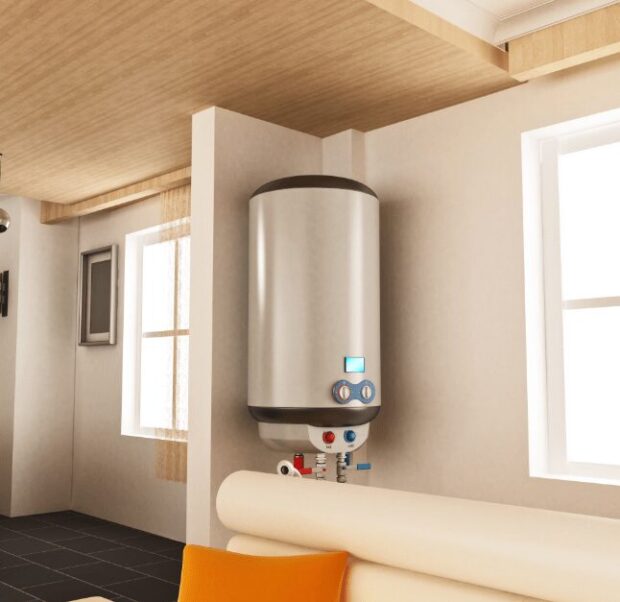Did you know that around 18 percent of your home’s energy expenses are used on heating your water? There are a number of different types of water heaters for you to choose from and consider when the time comes for you to get a new one for your sustainable home.
There are water heater options that include everything from tankless water heaters to water heaters equipped with home water filtration abilities. It is important to know your options when you start the buying process for your home’s next water heater.
The good news is that you’ve come to the right place to learn what you need in order to get the best home water heater for your ecofriendly home. Continue reading to learn more about the different types of water heaters available today.
Conventional Storage Water Heater
The most common type of home water heater is the conventional storage water heater. This type of home water heater features an insulated storage tank meant for holding large amounts of water that is hot. Most conventional storage water heaters hold somewhere between 30 and 80 gallons in their tanks.
There are multiple options for what powers the water heater to provide your home with hot water. A lot depends on the power sources that your home is connected to. Conventional storage water heaters work with propane, natural gas, oil, or even electricity.
This water heater works by gauging the temperature of the water inside of the tank. If the water drops below a set temperature then the tank will automatically begin heating the water to get it back to the temperature it needs to be. This process is constant, at every hour of the day throughout each year.
It isn’t efficient when it comes to energy use, but it provides the benefit of hot water that is ready to go as soon as you need or want it.
Tankless Water Heaters
Another popular option when it comes to the best home water heater is the tankless water heater. This type of water heater is a much better fit for a sustainable home that wants to cut down on energy use. It works by only heating water on demand. This means you’re not wasting money or energy on heating water at your house when you’re not even home.
There is a catch, though. Tankless water heaters have a low flow rate when compared to their conventional tank counterparts. These heaters can only move water at a rate of 2 to 5 gallons per minute. It also can’t work with more than one use in your household at a time. This means that if someone is showering and someone else tries to do the dishes, only one person will get the hot water.
A remedy to that situation is to Buy Water Heater for multiple uses and places in your home. This is the best way to guarantee that everyone will have hot water when and where they need it in your home.
\You’ll also get the benefit of knowing that you won’t need to replace your tankless water heaters for years to come. While conventional tank water heaters have a lifespan of around 10 years, tankless water heaters routinely last up to 20 years. The drawback is that tankless water heaters cost about twice as much, but they’re a great fit for an ecofriendly home.
Electric Heat Pump Water Heaters
If the name didn’t already give it away, this type of water heater is powered by electric energy. It works by intensifying the heat that it gets from the surrounding air and transferring that heat to the water in the storage tank. This is a wonderful choice for a water heater in hot climates like the American Southwest.
In a hot and sunny climate, this water heater design provides three times the efficiency of other water heating technologies and systems. You’ll save tons of money on energy savings while also getting the peace of mind that you’re helping the environment.
The only real drawback to this type of water heating system is the maintenance it requires. It works using an air filter and this air filter needs to be replaced or cleaned on a regular basis for the system to work well.
Solar Water Heaters
Another ecofriendly option for water heaters in hot climates is the solar water heater. This water heater works by capturing heat and energy from the sun. This means that you’ll have all the hot showers that you want for free and without harming the environment at all. It is perfect for any sustainable home.
While you might think that a solar water heater needs a particular climate to work, that isn’t always the case. This type of solar heater works well in almost any climate. It is made of two parts, the solar collector and the insulated water tank. It is up to you where you want to install your solar water heater but most people choose their roof or their yard.
In addition to being great for the environment, solar water heaters are also great for your budget. They’re the least expensive water heater option on the market today. There are two different types of solar water heaters depending on how they get the water to you.
The first type is called active solar water heaters. This type of solar water heater uses pumps as a way to get the hot water to where it is needed in your home. The other option is a passive solar water heater, and this model uses gravity to get the water where it is needed.
The maintenance for this type of water heater isn’t bad either. You should have a maintenance technician come out to provide maintenance on your solar water heater every three to five years. With proper maintenance, your solar water heater should last up to 20 years while providing all the hot water your household needs.
Now You Know the Different Types of Water Heaters
There are plenty of options to choose from when you discover that your home needs a new water heater. The good news is that each of these types of water heaters has plenty of positives that make it a great option for your home.
The conventional storage water heater makes sure that you have hot water when and where you need it, while the tankless water heater saves you money on energy. The electric heat pump and solar water heater options are both great for ecofriendly homes that want to enjoy hot showers while saving the environment and their budget.
For more helpful posts full of fun information, make sure you check out the rest of our blog.




























